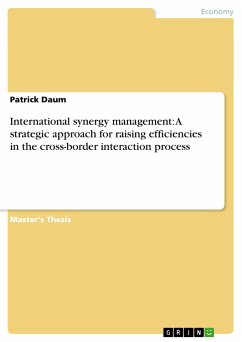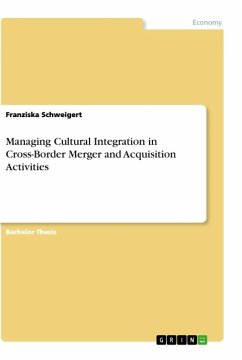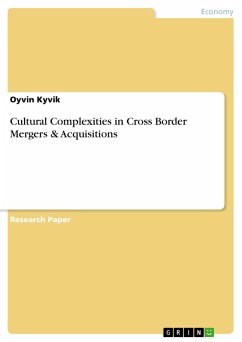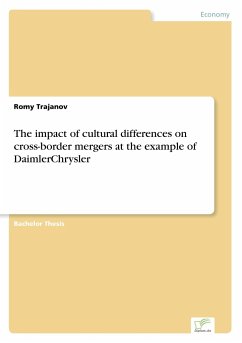Master's Thesis from the year 2011 in the subject Business economics - Business Management, Corporate Governance, grade: 1,3, South Bank University London (International Business), language: English, abstract: Global economic integration has changed business conditions significantly. Due to their limited financial and human resources it was initially difficult for German small and medium-sized businesses to internationalize. Nowadays, this business segment is heavily approaching foreign markets. Export is still the dominating internationalization mode, however it is supplemented by the relocation of selected business activities or entire value networks to foreign markets. Corporations operating internationally and establishing foreign subsidiaries are facing the obligation as well as the challenge to profit from cross-border interaction. However, potential synergetic benefits provided by the international environment are accompanied by even more demanding challenges.This dissertation elaborates to which extend German small and medium-sized manufacturing businesses could benefit from the implementation of a strategic cross-border synergy management. The study is based on a single case study deriving the research hypotheses and a survey investigating cross-border interaction throughout a sample of small and medium-sized manufacturing businesses. Research findings indicate that headquarter - subsidiary interaction within this business segment provides unutilized synergetic potential, as barriers are blocking the optimal design of cross-border interrelationships. In contrast to the organisational requirements proposed by scientific experts, a significant part of the responding companies are not actively controlling and managing these barriers in a strategic and comprehensive way. Extensive systems thinking and a holistic management approach are required in order to profit from synergetic interaction."Synergies are not realized by themselves - they have to be identified and actively developed within a professionally coordinate process. Management of synergy seeking organizations is asked for intensive efforts beyond daily operations" (Weber and Roventa, 2006).Based on the research findings this paper proposes a holistic framework, designed for strategists of small and medium-sized manufacturing business. It outlines the establishment of the cross-border synergy management concept as part of the corporate strategy and the efficient and effective management of international interaction.
Hinweis: Dieser Artikel kann nur an eine deutsche Lieferadresse ausgeliefert werden.
Hinweis: Dieser Artikel kann nur an eine deutsche Lieferadresse ausgeliefert werden.








